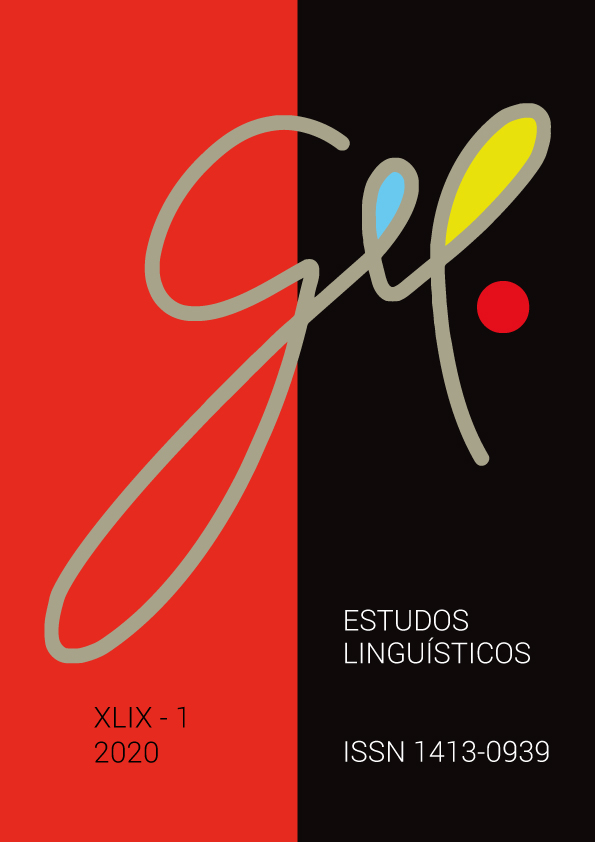The internalization process and English language teaching and learning within a state university
DOI:
https://doi.org/10.21165/el.v49i1.2530Keywords:
internationalization, foreign language proficiency, language assessment, EnglishAbstract
Based on the concepts of internationalization and foreign language proficiency, in this article, we aim to map the data on proficiency levels of learners who took part in English teaching projects supported by diverse funding sources that have been developed in a public university in São Paulo state. Within these projects, courses and online placement tests are offered to undergraduate and graduate students, as well as for members of the administrative staff. The courses are online (synchronous) in the web conferencing tool Zoom. The teachers in these courses are undergraduate and graduate students in the area of Language and Linguistics and they are supervised by professors from different areas of expertise, such as teachers’ education, technology in language teaching and language assessment.
Downloads
References
BEELEN, J.; JONES, E. Europe Calling: a new definition for internationalization at home. International Higher Education, Boston, n. 83, p. 12-13, dez. 2015.
CASTRO, W. R. A.; PINEDA, R. E. G. Educación y globalización: una visión crítica. Revista Civilizar Ciencias Sociales y Humanas, Bogotá, v. 16, n. 30, p. 191-206, 2016.
CRESWELL, J. W. Projeto de pesquisa: métodos qualitativo, quantitativo e misto. 2. ed. Porto Alegre: Artmed, 2007.
FINARDI, K.; SANTOS, J.; GUIMARÃES, F. A relação entre línguas estrangeiras e o processo de internacionalização: evidências da coordenação de letramento internacional de uma universidade federal. Interfaces Brasil/Canadá, Canoas, v. 16, n. 1, p. 233-255, 2016.
HARSCH, C. Proficiency. ELT Journal, Oxford, v. 71, n. 2, p. 250-253, 2017.
GONZALEZ, N. F. La lucha simbólica por la educación en la globalización neoliberal. Revista Brasileira de Educação, Rio de Janeiro, v. 22, n. 71, p.1-23, 2017.
KANEKO-MARQUES, S. M.; GARCIA, D. N. M. Implementação do programa idiomas sem fronteiras na UNESP. Revista Estudos Linguísticos, São José do Rio Preto, v. 48, n. 1, p. 242-261, 2019.
KENNEDY, C. Language use, language planning and EAP. In: FLOWERDEW, J.; PEACOCK, M. (ed.). Research perspectives on English for Academic Purposes. Cambridge University Press: Cambridge, 2001. p. 25-41.
LAKATOS, E. M.; MARCONI, M. A. Fundamentos de Metodologia Científica. 5. ed. São Paulo: Atlas, 2003.
MCNAMARA, T. Language testing. Oxford: OUP, 2000.
MIHO, S. R. G. Internacionalização, testes de proficiência e formação de professores. In: Congresso Latino-Americano de Formação de Professores de Línguas, 6, 2016. Londrina, Anais (...). Londrina:UEL, 2017, p. 812-824.
MOROSINI, M.; USTÁRROZ, E. Impactos da internacionalização da educação superior: construindo a cidadania global por meio do currículo globalizado e das competências interculturais. Em Aberto, Brasília, v. 29, n. 97, p. 35-46, 2016.
NILSSON, B. Internationalising the curriculum. Internationalisation at Home. A Position Paper. Amsterdã: European Association for International Education (EAIE), 2000. p. 21-27.
OLIVEIRA, S. S. A Língua da ciência. Pesquisa FAPESP, São Paulo, ano 20, n. 282, p. 96-97, 2019.
O’SULLIVAN, B. Aptis test development approach. London, UK: British Council, 2012.
PINTO, P. T. Língua inglesa na UNESP: internacionalização, formação e transversalidade. Projeto de Pesquisa, São José do Rio Preto, 2017.
SAVIGNON, S. J. Communicative competence: theory and classroom practice texts and contexts in second language learning. USA: Addison Wesley Publishing Company, 1983.
SCARAMUCCI, M. V. R. Proficiência em LE: considerações terminológicas e conceituais. Trabalhos em Linguística Aplicada, Campinas, v. 36, p. 16-20, 2000.
STERN, H. H. Fundamental concepts of language teaching. Oxford: OUP. 1983.
TELLES, J. A. Teletandem and performativity. Revista Brasileira de Linguística Aplicada, v. 15, n. 1, p. 1-30. 2015. Disponível em: http://www.scielo.br/scielo.php?script=sci_arttext&pid=S198463982015000100001&lng=en&tlng=en. 10.1590/1984- 639820155536. Acesso em: 02 jan. 2019.
TELLES, J. A. Projeto Teletandem Brasil: Línguas Estrangeiras para Todos – Ensinando e Aprendendo línguas estrangeiras in-tandem via MSN Messenger. Assi: Faculdade de Ciências e Letras, UNESP. 2006. Disponível em: http://www.teletandembrasil. org/site/docs/TELETANDEM_BRASIL_completo.pdf. Acesso em: 02 jan. 2019.
WÄCHTER, B. Internationalization at home: the context. In: CROWTHER, P.; JORIS, M.; OTTEN, M.; NILSSON, B.; TEEKENS, H.; WÄCHTER, B. Internationalisation at home. A position paper. Amsterdã: European Association for International Education (EAIE), 2000. p. 5-13.
WIT, H.; LEASK, B. Internationalization, the curriculum, and the disciplines. International higher education, Boston, n. 83, p. 10-12, 2015.



